Walkers braving Aberdeen’s Esplanade might look at the crashing waves of the North Sea and think it looks grey, miserable or cold – but not Adam Rofe.
Instead, he sees potential.
To the keen surfer, the surges and swells stir up his need to be on the water – a passion he discovered when first trying the sport as an 18-year-old student.
When he moved to Aberdeen from York in 2016 for a position working at Aberdeen University, he stumbled across another pull to the water.
The 35-year-old was keen to head further north for some of Scotland’s – and arguably the UK’s – top surf spots like Thurso East.
However, to battle the more powerful waves, Adam realised he would have to build on his fitness and confidence.
That was when he joined Aberdeen Surf Life Saving Club (ASLSC).
Seven years on, the now club captain has not looked back and he said their presence in the city is as important as ever – especially as the beachfront gets busier every year.
What is Aberdeen Surf Life Saving Club?
The story of ASLSC began where a lot of essential organisations start – good old budget cuts.
After the council withdrew the paid lifeguard service on Aberdeen’s beachfront in 1992, many of the team stayed on as volunteers and formed the club to provide patrols over the summer months.
While Adam said the patrols are something they would like to get back to doing, the members are certainly kept busy.
The club, which is based down on the beachfront, aims to save lives, prevent tragedies and to educate and train people.
For the younger ones, they carry out two sessions for those aged seven to 16 years old.
As a stakeholder of the beach masterplan development, the club is also starting to bring all the water users together to build support for the proposed new clubhouse down at Fittie.
The club’s other goal is to compete at a national level in surf life-saving – a sport that is growing increasingly popular in the UK.
When asked to describe the activity, Adam said Wikipedia has “got that down”.
“Wikipedia calls it a social movement,” he said.
“It’s this mix of life-guarding skills, first aid, water safety knowledge, having awareness of the beach environment in order to prevent people getting into trouble and also rescuing people when they do get in trouble.
“So taking a lot of those skills and thrills and rescue techniques that you’d need to help somebody and turning them into a sport.”
Risk of ‘close calls’ increasing
However, under all these activities lies a bigger purpose.
As the city’s beach becomes much more heavily used year-on-year, the “close calls” have also increased.
While Adam said he has not performed a “full-on rescue”, he has helped a few people who were in over their heads.
He said: “Most recently I was very, very close to having to jump in the water because we had some people going in for a cold-water dip and they just picked an absolutely terrible spot to go in.
“I was literally stepping into my wet suit to go in after them and a freak wave came and just washed them all back on to the beach.
“It’s been a couple of close calls like that…we haven’t had to go and grab anybody as such just yet.
“I could see it potentially happening in the future, the beach just keeps on getting busier and busier.”
Living in a coastal city with a large population, Adam said for him, the importance of learning these skills is obvious.
He added: “People need to know these skills. It should be that kids are all taught how to swim, or if they’re not taught how to swim, they’re all taught if you fall into a river or lake this is what you need to do to stay afloat.”
Club meets unmet need for essential life skills
He said having a bit of knowledge can really help.
Knowing the RNLI’s Float to Live allowed a nine-year-old boy near Scarborough to keep himself afloat for over an hour before he was rescued.
While those from fishing villages in the north-east tend to respect the sea, others either want nothing to do with it or are drawn in by the content on social media around paddle boarding and cold-water dipping.
Adam said: “There is this gap and there is this unmet need for clubs like ours to exist.
“To be able to build up people’s confidence with the sea and help them develop that kind of positive relationship with it where they are given the skills to enjoy it safely.
“Hopefully we can spread this knowledge throughout the community so that we can have an impact in stopping people from drowning and getting in trouble in the first place.
“I would love if Aberdeen was this little beacon of surf life-saving in the north-east.”
The club is a literal lifeline for many people yet not many are aware of its existence.
Members hope with increased awareness they can help educate more people, raise funds for much-needed lifesaving equipment and invite more people to join their ranks.
For anyone looking to get involved, no prior experience is needed. To find out more or to get in touch, click here.
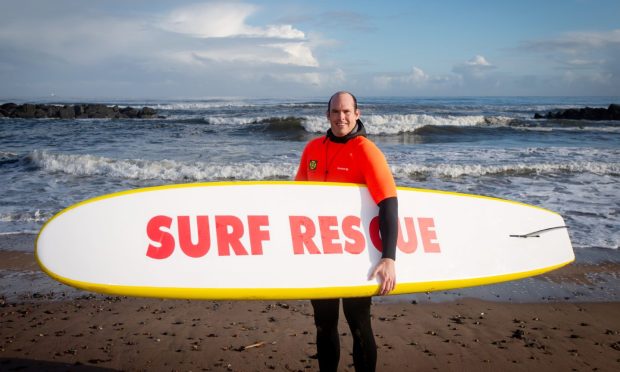
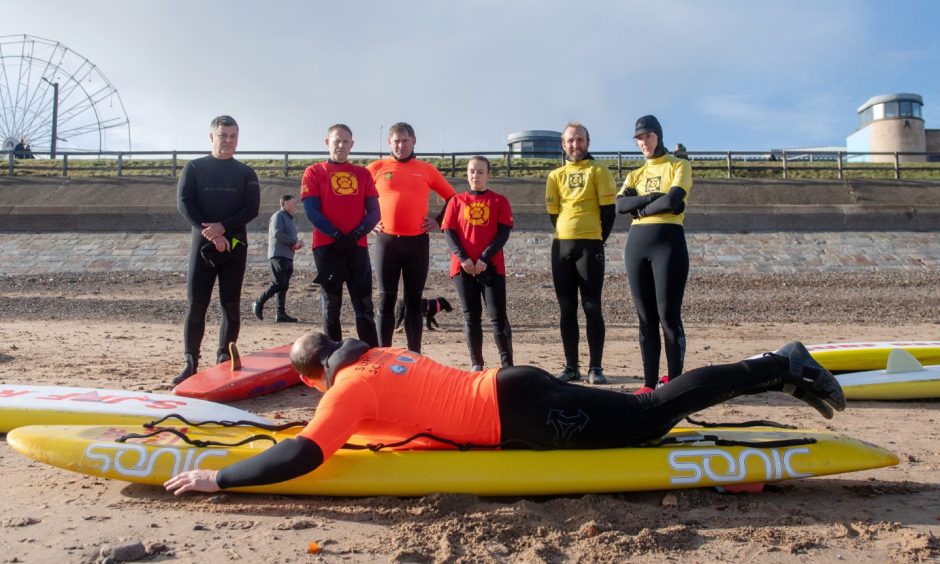
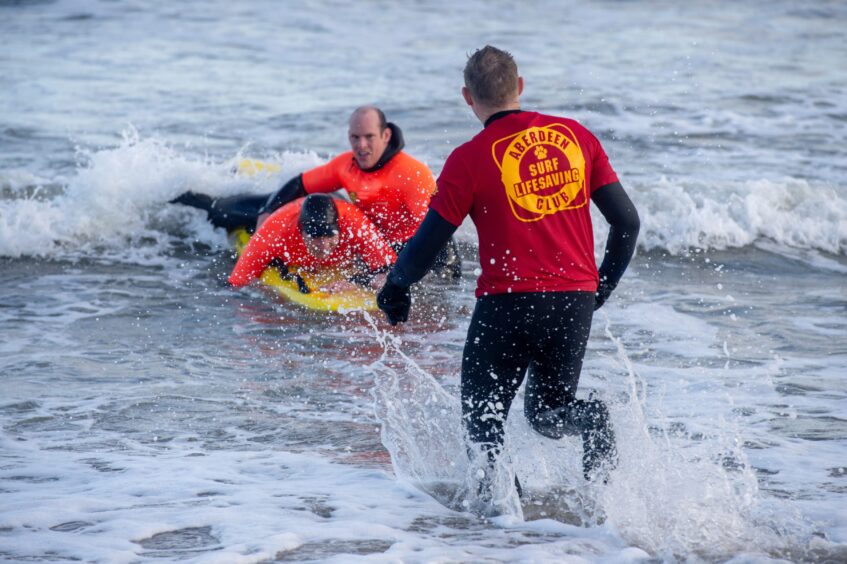
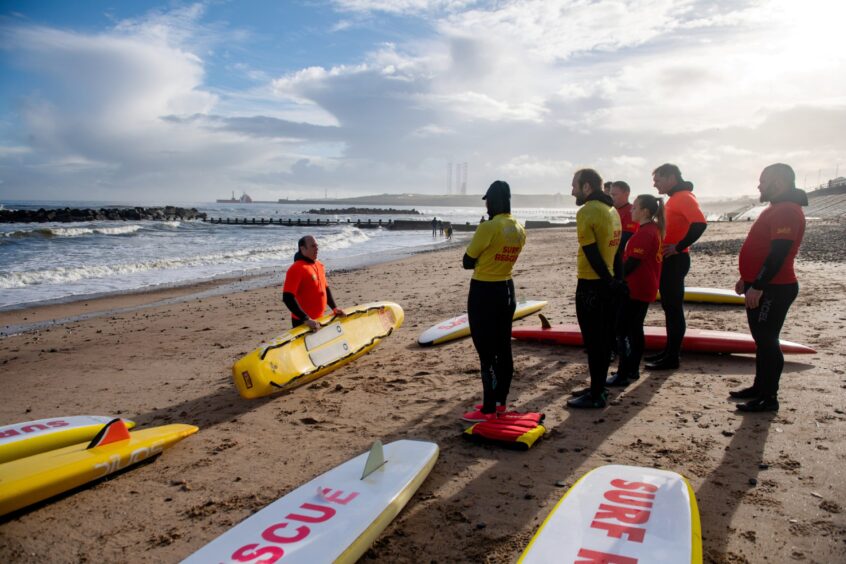
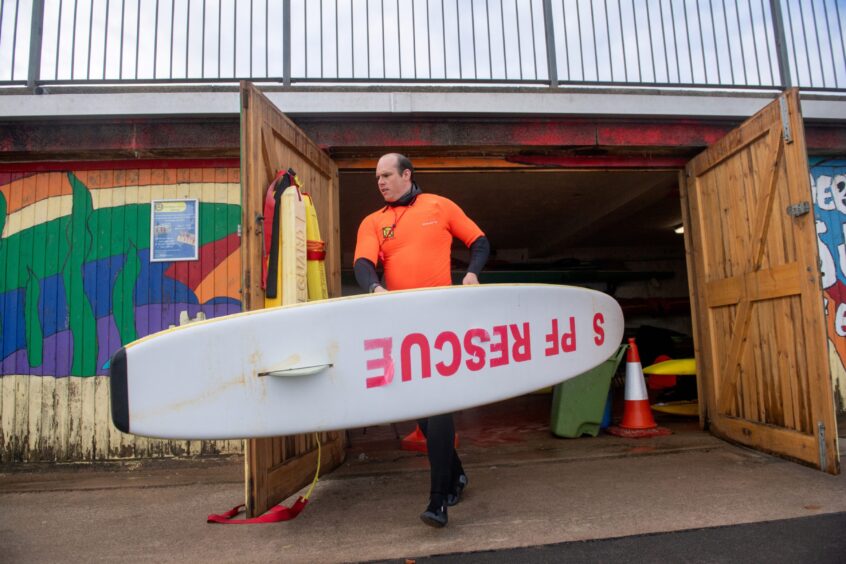
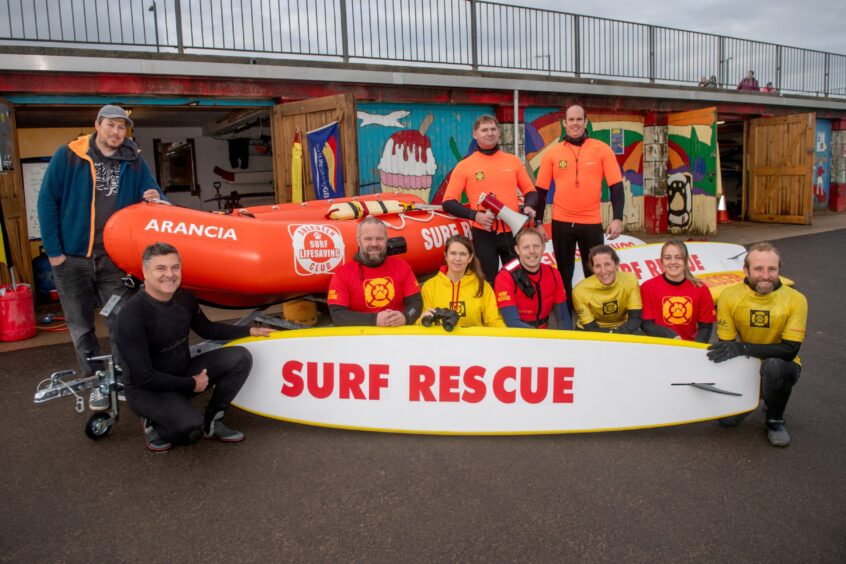
Conversation